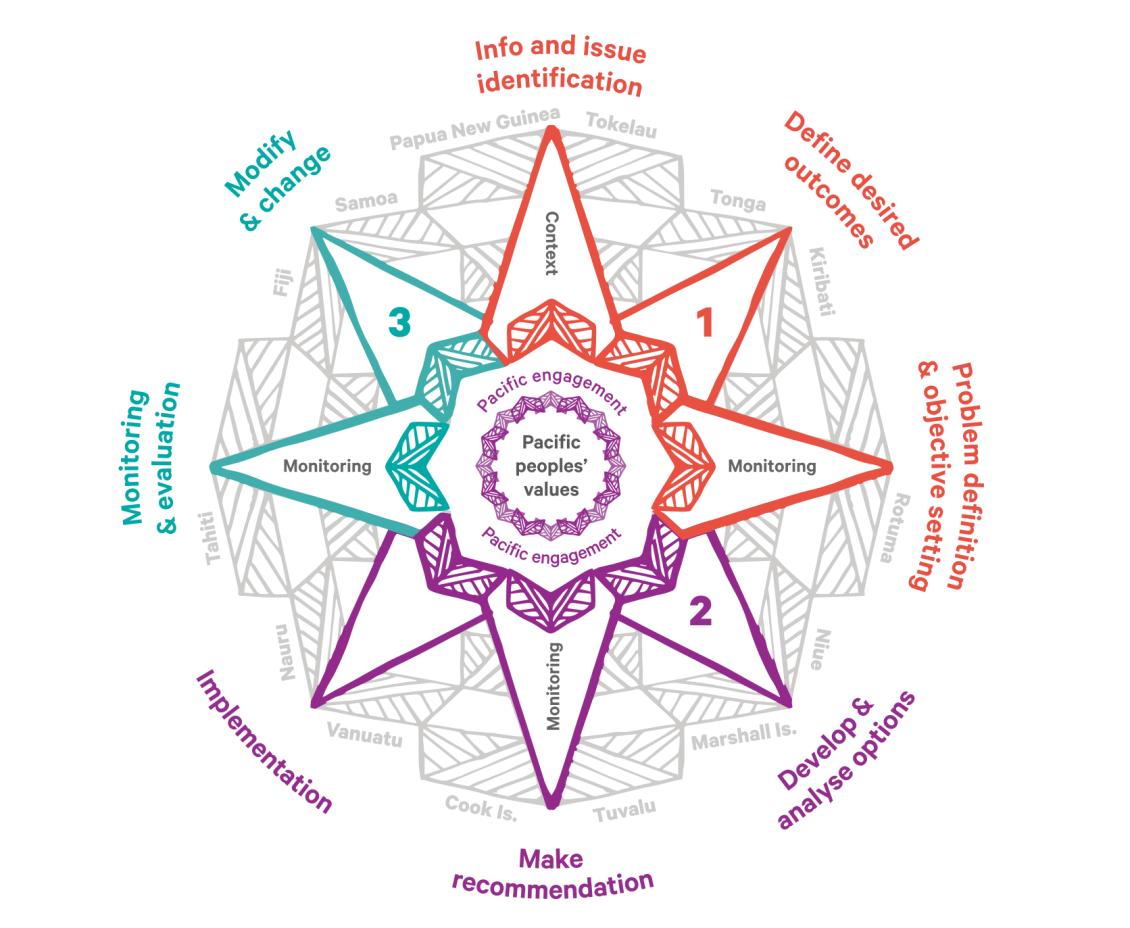Kapasa - The Pacific Policy Analysis Tool
Kapasa - The Pacific Policy Analysis Tool

Kapasa is a tool for policy managers, advisors and analysts within government agencies to incorporate the perspectives of Pacific peoples in the generic policy development process. The framework sets out ways to effectively include information about Pacific peoples, take account of their values and their diversity, as well as ensuring effective consultation with them in the policy development process.
‘Kapasa’ is the Tongan (pronounced Kāpasa) and Samoan (pronounced Tapasā or colloquially Kapasā) translation for 'compass'. Compass is called Kabasi in Fiji and Kamapasi in Niue. Kapasa echoes how our Pacific ancestors successfully navigated their way across the Pacific Ocean. Kapasa is used as a metaphor to represent policy navigation in a diverse society like Aotearoa New Zealand.
Check out Kapasa - The Pacific Policy Analysis Tool:
Take the Kapasa eLearning module
Kapasa recognises that Pacific peoples have a right to equitable outcomes in all aspects of New Zealand life. It encourages users to think critically about the perspectives of Pacific peoples. Specifically, it sets out ways to:
- effectively include data and important information about Pacific peoples
- take account of Pacific values, experiences, strengths, and diversity
- ensure effective engagement as policy is developed, implemented, and monitored.
The Kapasa encourages a strengths-based approach to policy development, where Pacific peoples are concerned. This approach is based on the beliefs that all people and communities:
- have existing strengths, experiences, and capabilities
- have resources and are capable of learning new skills and solving problems
- can use existing competencies to identify and address their own concerns.
Kapasa applies three overlays to the generic policy development process:
- Overlay 1: Pacific peoples’ information and evidence
- Overlay 2: Pacific peoples’ values, strengths and diversity
- Overlay 3: Pacific peoples’ engagement.
These overlays do not alter the generic policy process. Instead, they add value by allowing for better integration of Pacific peoples’ perspectives throughout the policy development process.
While Kapasa is aimed primarily at policymakers in government agencies, it can be useful for the private and non-government sectors also.
Kapasa can be applied to a range of policy work and decision-making where Pacific peoples will be affected directly or indirectly, such as:
- developing strategies and action plans
- considering policy levers or options
- developing programmes and initiatives
- assigning priorities and resources
- developing laws and regulations
- determining how services will be delivered.
Kapasa is designed to be applied at each phase of the policy development process if Pacific people are affected. It breaks this process into three broad phases: ‘Context and outcome’; ‘analysis and implementation’; and ‘monitoring, adjustment and evaluation’.
While there is an increasing focus on improving Pacific outcomes, Pacific peoples continue to experience inequities when compared with other population groups. This signals that policies are not meeting the needs and aspirations of Pacific peoples as effectively as they could.
Understanding Pacific stories and what works for Pacific peoples adds rigour to policy analysis and advice. Effectively engaging Pacific communities in the policy process can enable better understanding of the problem, help identify strengths-based solutions and boost community ownership and action.
Kapasa provides a platform for government agencies to build their understanding of Pacific peoples. This can lead to more effective policy development, improved outcomes, and better quality of life.
